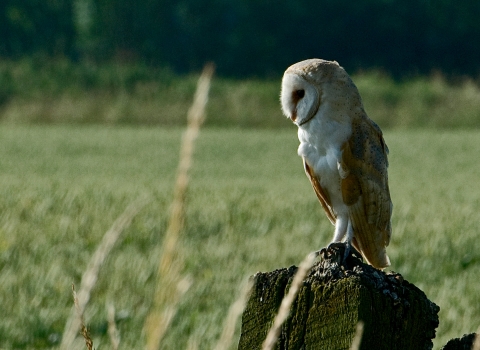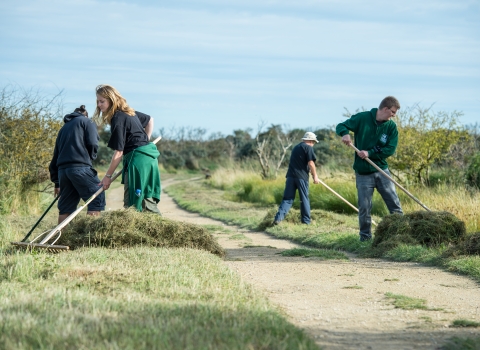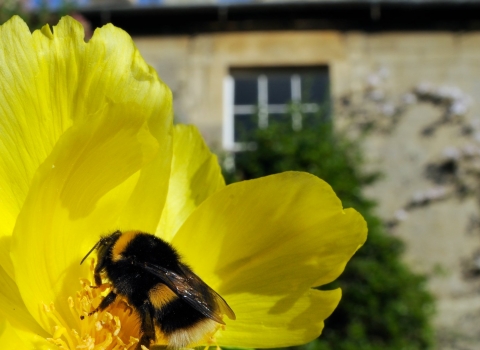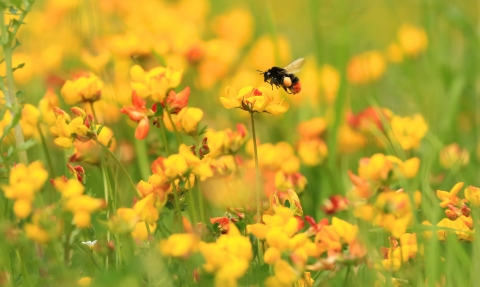
Red-tailed bumblebee on bird's foot trefoil - Jon Hawkins - Surrey Hills Photography
Save our VIBs*
Insects are facing a catastrophic decline – can you help save our VIBs?
From the buzz of a bumblebee on a nearby flower and butterflies lazily flitting across the garden to moths dive-bombing a lampshade and batting a wasp away from your picnic, insects evoke a range of feelings. To some they are beautiful, fascinating creatures, for others they are associated with annoyance, bites and stings. Love them or loathe them, these little creatures are far more essential than given credit. They are vitally important as food for many species, pollinators and recyclers, amongst other things.
Worryingly, recent evidence suggests that abundance of insects may have fallen by 50% or more since 1970. 405 invertebrates are classified at risk of extinction from Great Britain. It is a devastating loss and their decline could have profound consequences for both nature and human wellbeing.
Habitat loss and chronic exposure to pesticides are the two major causes of insect decline. Since 1930 it is estimated that in the UK we have lost 150,000 miles of hedgerow, 97% of wildflower meadows and 50% of ancient woodlands. Traditional mixed family farms have given way to large arable agribusinesses. The result is a landscape that produces more food cheaply, but the heavy use of pesticides and fertilisers is largely inhospitable to wildlife. Defra figures show that the total area of crops treated with pesticides in the UK has approximately doubled between 1990 and 2015 to some 80,000,000 hectares. Nearly 17,000 tons of chemicals are broadcast across our landscape every year.
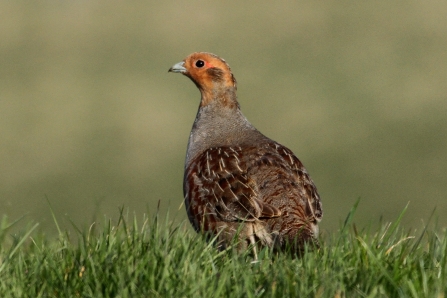
Grey Partridge - (c) Margaret Holland
Save the insects, save nature
Although the bulk of insect species are not monitored, we often have good data on population trends for birds that depend on insects for food, and many of these are in decline. UK populations of the spotted flycatcher fell by 93% between 1967 and 2016. Other once-common insect-eating birds have suffered similarly, including grey partridge (92% decline), nightingale (93%) and cuckoo (77%).
The food we rely on could also be in danger from plummeting insect numbers. 75% of all the crops we grow require pollination by insects. This includes fruits such as apples, strawberries and plums, and many vegetables including spring beans.
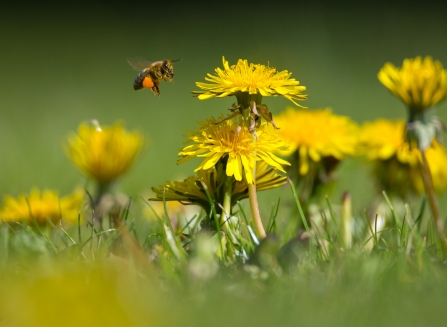
Bee and dandelion (c) Jon Hawkins
What can you do?
- Stop using pesticides in your own garden.
- Lobby your MP to press for a strong Environment Act.
- Support our monitoring and research programme so we can keep our sites in the best condition for wildlife.
- Help us look after our wildflower meadows and other places important for insects.
- Be part of a Nature Recovery Network by growing plants in your garden that are rich in nectar and pollen for bees, butterflies and hoverflies, and avoid using pesticides.
- A donation of £20 or more will help us look after wildflower meadows and protect vital places for insects.
By working together we can address the causes of insect decline, halt and reverse them, and secure a sustainable future for insect life and for ourselves. Your support of our work, through your membership and donations, helps us achieve so much in protecting wildlife.




